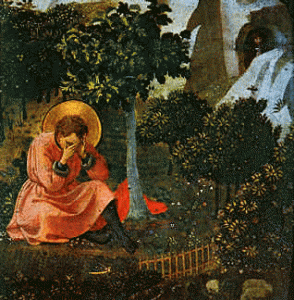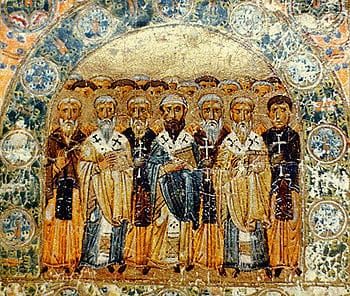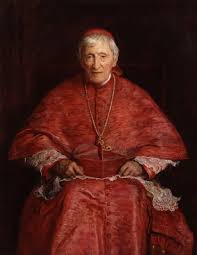Each Christmas a friend of mine sends me a text wishing me “seasons greetings”. He casts a wide net capturing the “spirit” of the season wishing me a “Merry Christmas, Merry Natalis Solis Invictus, and Happy Kwanza” and, just in case, throws in a “Happy Festivus” for the rest of us. Rather than continually engaging him each year, I now simply respond “Merry Christmas…and as for the rest, I have already aired my grievances.” His point is rather clear—Christmas is just as made up as the rest of them. It is an indirect attack on the historicity of Christ, but also a direct attack on the dating of Christmas as December 25th. Having addressed the indirect attack in other posts, it is the direct attack I would like to address in this post.
The Problem of Accuracy
One of the problems we must admit right away is related to the accuracy of the date. The Church Fathers are not unanimous in the dating of Christmas and very few mention December 25th. It is not until much later that the Church selected that date to mark the Solemnity of Christmas. Part of the problem is the abundance of calendars used in the ancient world. The two most commonly ones that were used Egyptian and the Julian Calendar. The Jews also used a calendar based on the lunar cycles (354 days) rather than on the solar cycle (365). These were considered obsolete when the Gregorian Calendar was adopted in the 1500s (although the Orthodox still mark Christmas on January 7th which is the equivalent to December 25th on the Julian Calendar). The point is that our December 25th is not the same day as the December 25th using the Julian Calendar, which was the one in use in the Roman Empire at the time of Christ. We have to admit that there is a “translation” problem that makes the exacting dating difficult.
This does not mean, however, that the selection of December 25th is arbitrary and meaningless. But this is to yield to the sentiment that somehow accuracy and meaning are synonymous. Just because we cannot accurately calculate the date of Christ’s birth doesn’t mean December 25th is arbitrary. In fact, it is the most fitting date to celebrate the historical reality of Christ’s nativity because it preserves the meaning of Christ’s birth.

There is a principle at play in the discussion that, in our Big Bang/Evolutionary ideal, is often forgotten. Nothing within Creation is arbitrary. Even the tiniest activity is charged with meaning, not because of the Butterfly Effect, but because of Christ. To put it in biblical terms, “in Him were created all things in heaven and on earth…all things were created through Him and for Him” (Col 1:16, emphasis added). At the center of Creation, at the center of history, is Christ. All of Creation points to Him and all of Creation finds its meaning in Him. Christ really is the answer. He is, to use Aristotelian terms, the Final Cause of each thing in Creation. This was His reason for creating so many natural images so that He might use them to describe Himself and His Kingdom.
The Fittingness of December 25th
With this in mind, why is December 25th fitting then? To grasp this we must go back to “the beginning”. Many of the Jews and ancient Christians believed that the Sun was created on March 25th. It is assumed that when God created the Sun to “separate day from night” (Gn 1:14), this separation was equal. This only occurs on two dates throughout the year—the two equinoxes in the Spring and the Fall. The date for the Vernal Equinox in the Julian Calendar was March 25th. God chose the fourth day for the creation of the sun because it was the day in which the “sun of righteousness” (Mal 4:2) was to come into the world. Its creation is for the sake of God Himself entering Creation. This entering into Creation occurred when the Holy Spirit overshadowed His Mother at the Annunciation. It is for this reason To mark Christ’s conception the Church celebrates the Feast of the Annunciation on March 25th .
As an aside, March 25th is also believed by many Church Fathers to be the day Christ died. “On the third day, He rose again” and man was re-made. Again, we see the parallel with Creation. The Sun is created on the 4th day and then “on the third day” (Day 6) man is first made. This only seems like a stretch when we forget the principle articulated above. If all things really were made for Christ, then this is exactly what you would expect.
If Christ was conceived on March 25th, then it would be reasonable to celebrate His birth nine months later on December 25th. This is the reason for the December 25th celebration. In support of this date we also have the witness of nature itself. “The true light which has come into the world” (Jn 1:9), comes right after the Winter Solstice, when the amount of light coming into the world from the Sun begins to increase. December 25th is most certainly fitting.
The three Wise Men knew all of this. This is why they followed the Star. They knew nature points to the True King. The choice of December 25th is a defense of the primacy of Christ, not just over Solis Invictus, but over all of Creation. We too would be wise to pay attention to this principle.
















